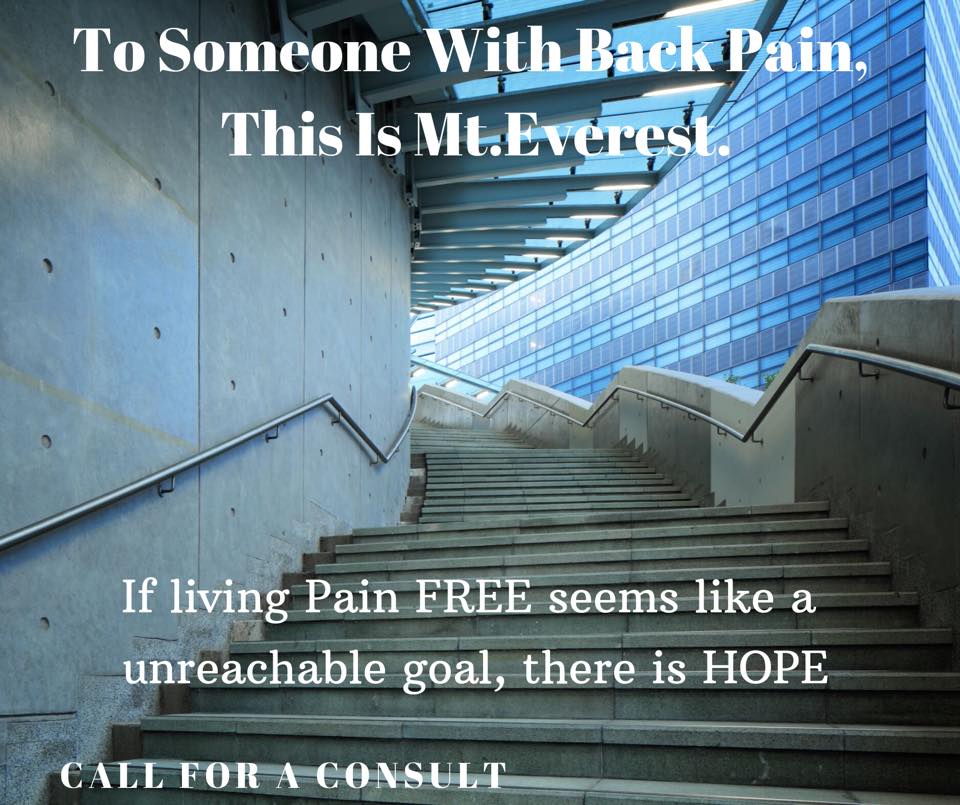- Cloud 9 Acupuncture & Integrative Medicine22 West Padonia Rd. Suite A-203
Timonium, MD 21093 Follow Us!
Back Pain
The Many Benefits of Acupuncture
Acupuncture is a traditional Chinese medicine (TCM) practice that involves inserting thin needles into specific points on the body. By stimulating these points, acupuncture can help to promote healing.
There is a growing body of scientific research that supports the benefits of acupuncture. Studies have shown that acupuncture can be effective for treating a variety of conditions, including:
- Pain: Acupuncture has been shown to be effective for relieving pain caused by a variety of conditions, including chronic pain, like back pain, knee pain, sciatica, as well as arthritis, and headaches or migraines.
- Neuropathy: At Cloud 9 Acupuncture, we have a comprehensive neuropathy program designed to alleviate symptoms, with over a 85% success rate.
- Autoimmune: With advanced therapies in combination with acupuncture, we provide relief from the often debilitating symptoms of autoimmune conditions like IBS, Lupus, rheumatoid arthritis, MS, Lyme’s disease and more.
- Anxiety and depression: Acupuncture can help to reduce anxiety and depression by stimulating the production of endorphins, the body’s natural painkillers.
- Fertility: Acupuncture can help to improve fertility by increasing blood flow to the reproductive organs.
- Nausea and vomiting: Acupuncture can help to relieve nausea and vomiting caused by pregnancy, chemotherapy, and motion sickness.
- Smoking cessation: Acupuncture can help people quit smoking by reducing cravings and withdrawal symptoms.
If you are considering acupuncture, begin with a consult with Dr. Laura here at Cloud 9 Acupuncture.

Can Acupuncture Help with Peripheral Neuropathy?
Peripheral neuropathy is a condition that affects the nerves in the hands, feet, arms, and legs. It can cause a variety of symptoms, including numbness, tingling, pain, and weakness. There is no cure for peripheral neuropathy, but there are treatments that can help to relieve symptoms.
Acupuncture is a traditional Chinese medicine treatment that involves inserting thin needles into specific points on the body. It is thought to work by stimulating the body’s natural healing abilities.
There is some evidence that acupuncture can be effective in relieving the symptoms of peripheral neuropathy. A study published in the journal Pain Medicine found that acupuncture was effective in reducing pain and improving function in people with diabetic peripheral neuropathy.
Another study, published in the journal Neurology, found that acupuncture was effective in reducing pain and improving sleep quality in people with HIV-associated peripheral neuropathy.
If you are considering acupuncture for peripheral neuropathy, it is important to talk to your doctor first. Acupuncture is not a cure for peripheral neuropathy, but it may be able to help to relieve your symptoms.
How Does Acupuncture Work for Peripheral Neuropathy?
The exact mechanism by which acupuncture works for peripheral neuropathy is not fully understood. However, it is thought that acupuncture may help to reduce inflammation, improve blood flow, and stimulate the release of pain-relieving chemicals in the body.
Acupuncture is also thought to help to improve the function of the nervous system. This may be due to the fact that acupuncture can help to restore the balance of yin and yang, which are two opposing forces that are thought to govern the body in traditional Chinese medicine.
Is Acupuncture Safe for Peripheral Neuropathy?
Acupuncture is generally considered to be a safe treatment for peripheral neuropathy. However, there are some risks associated with acupuncture, such as bleeding, bruising, and infection. It is important to see a qualified acupuncturist who is experienced in treating peripheral neuropathy.
If you are considering acupuncture for peripheral neuropathy, here are some things to keep in mind:
- Make sure to see a qualified acupuncturist who is experienced in treating peripheral neuropathy.
- Be aware of the risks associated with acupuncture.
- Be patient. It may take several treatments before you see improvement in your symptoms.
If you are looking for a natural way to relieve the symptoms of peripheral neuropathy, acupuncture may be a good option for you. Call today to begin with a consultation to find out if you’re a good candidate for treatment.

Acupuncture for Fibromyalgia: Can It Help?
Fibromyalgia is a chronic condition that causes widespread pain and fatigue. It is often accompanied by other symptoms, such as sleep problems, cognitive difficulties, and mood disorders. There is no cure for fibromyalgia, but there are treatments that can help manage the symptoms.
Acupuncture is a traditional Chinese medicine (TCM) treatment that has been used for centuries to treat a variety of conditions, including fibromyalgia. Acupuncture involves inserting thin needles into specific points on the body. When needles are inserted into acupuncture points, it is believed that they can help to balance the nervous system and reduce pain.
There is some evidence that acupuncture can be effective in treating fibromyalgia. A 2018 systematic review of randomized controlled trials found that acupuncture was effective in reducing pain and improving function in people with fibromyalgia. The review also found that acupuncture was well-tolerated and did not have any serious side effects.
Another study, published in 2019, found that acupuncture combined with conventional fibromyalgia treatment was more effective than conventional treatment alone in reducing pain and improving function.
The evidence suggests that acupuncture can be an effective treatment for fibromyalgia. If you are considering acupuncture for fibromyalgia, begin with calling today for a consultation with our doctor.
If you are interested in learning more about acupuncture for fibromyalgia, please visit our website or contact us today. We would be happy to answer any questions you have.

Acupuncture for Chronic Pain, Failed Surgeries, and Autoimmune Conditions
If you’re suffering from chronic pain, failed surgeries, or an autoimmune condition, you’re not alone. Millions of people around the world struggle with these conditions, and they can be incredibly debilitating.
Traditional Western medicine often doesn’t offer much relief for these conditions. In some cases, surgery may be an option, but it’s not always successful. And even when surgery is successful, it often doesn’t address the underlying cause of the pain or condition.
That’s where acupuncture comes in. Acupuncture is a traditional Chinese medicine treatment that has been used for thousands of years to treat a variety of conditions, including chronic pain, failed surgeries, and autoimmune conditions.
Acupuncture works by stimulating specific points on the body with thin, stainless steel needles. This stimulation helps to improve the flow of qi, or vital energy, throughout the body. When the flow of qi is restored, the body is better able to heal itself and reduce pain and inflammation.
There is a growing body of scientific evidence to support the use of acupuncture for chronic pain, failed surgeries, and autoimmune conditions. For example, a study published in the Journal of the American Medical Association found that acupuncture was effective in reducing pain and improving function in people with chronic low back pain.
Another study, published in the Annals of Internal Medicine, found that acupuncture was effective in reducing pain and improving quality of life in people with rheumatoid arthritis.
If you’re considering acupuncture for chronic pain, failed surgeries, or an autoimmune condition, it’s important to find a qualified acupuncturist. A qualified acupuncturist will have extensive training in Chinese medicine and will be able to assess your individual needs.
Acupuncture is a safe and effective treatment for chronic pain, failed surgeries, and autoimmune conditions. If you’re looking for a natural way to relieve your pain and improve your quality of life, acupuncture may be a good option for you.

The Best Way to Find the Best Acupuncture Clinic for You
Whether you’re suffering from low back pain, or neuropathy, infertility or headaches, you’ll want to find the best acupuncture clinic that suits your needs the best.
The very best way is to call and speak with the receptionist of your clinic of interest and ask them if they have experience in or specialize in your primary condition you are seeking care for. While most acupuncturists have trained extensively for 3-5 years in graduate level study acupuncture programs, and receive a Master’s degree or a Doctorate (also known as a Acupuncture Physician), it’s still best to work with an acupuncturist or clinic that has experienced success in treating your condition.
Some questions you can ask when you phone a prospective acupuncture clinic:
Has the acupuncturist treated my type of condition before?
What is the success rate of treating my condition at this clinic?
How many years of experience does the acupuncturist have?
Do you offer any additional therapies beyond acupuncture to help address my condition?
What can I expect during my first visit? (Is it just a consultation, or will I receive treatment that day?)
Most of our patients are referred by word of mouth, from former patients who have also experienced success. Our acupuncturist Dr. Laura Parks does specialize in chronic, complex conditions and has been practicing for over 13 years. She received her acupuncture doctorate from Five Branches University, and acupuncture masters from Maryland University of Integrative Health (formerly Tai Sophia). Dr. Parks has been treating Fertility patients for over 13 years and specializing in neuropathy for over 4 years, with over a 85% success rate.
